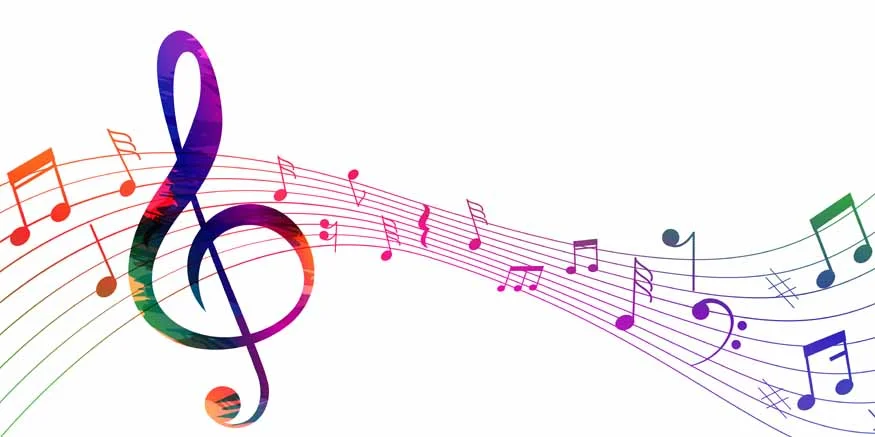What is Music?
Music is a powerful form of expression and communication that transcends language and cultural barriers. As an art form, it combines sound, rhythm, melody, and harmony to evoke a wide range of emotions and responses. Whether through its technical elements or its cultural significance, music remains a dynamic and universal aspect of human life. It plays an essential role in emotional expression, cultural identity, and social connection, enriching our personal experiences and shaping the world around us.
Elements of Music
- Rhythm: The pattern of beats or pulses in music, providing structure and movement.
- Melody: A sequence of notes perceived as a cohesive entity, often the most memorable part of a composition.
- Harmony: The combination of different musical notes played simultaneously to enhance the melody.
- Dynamics: The variation in loudness and intensity, adding emotional impact to the music.
- Form: The structure or layout of a musical piece, from simple verse-chorus forms to more complex compositions.
The Impact of Music
Music is a universal force that shapes our lives in both subtle and profound ways. From childhood lullabies to the anthems of our youth, music influences our emotions, behaviors, and sense of identity. Whether it’s the melodies we associate with solitude or the rhythms that drive our celebrations, music is a constant companion that has a profound impact on both personal and social levels.
- Personal Impact: Music can evoke memories, alter emotions, and enhance cognitive function. It can be a source of comfort, motivation, and inspiration.
- Social Impact: Music often brings people together, fostering social connections through concerts, festivals, or shared tastes. It can also serve as a platform for social commentary and activism.
The Emotional Aspect of Music
One of the most powerful aspects of music is its ability to evoke and amplify emotions. A familiar song can transport us back in time, rekindling memories so vivid that they feel real. Music resonates with our emotional states, whether through the melancholic strains of a classical piece that mirrors our sadness or the uplifting beats of a dance track that boosts our mood.
Music can also affect our physical health by reducing stress and anxiety or boosting motivation and performance. This emotional connection is deeply rooted in how our brains process music. Studies have shown that music activates brain regions associated with emotion, memory, and movement, explaining why it has such a strong impact on our lives.
Music as a Social Connector
Music is a powerful force for social connection. It unites people, whether through communal singing, concerts, or shared playlists. Music transcends cultural and generational boundaries, creating bonds between people from different backgrounds and fostering a sense of community.
Consider how music plays a role in rituals and celebrations—national anthems, wedding songs, and traditional chants all enhance communal experiences. Music’s ability to bridge divides and bring people together is undeniable, turning strangers into friends and shared moments into lasting memories.
The Personal Soundtrack of Life
On a more personal level, music often becomes the soundtrack to our lives. The songs we listen to, the genres we prefer, and the playlists we create reflect our identities and experiences. Each track or album marks a chapter in our lives, offering comfort and connection during times of joy, sorrow, or introspection.
Crafting a playlist can be like writing a personal diary—each song representing a moment or emotion that holds significance. These playlists not only serve as a form of self-expression but also provide a sense of stability during life’s changes.
Music Therapy and Healing
Music’s therapeutic potential has been recognized for years and is now widely used in healing practices. Music therapy addresses a range of physical, emotional, and cognitive issues, from helping trauma survivors to improving cognitive function in patients with neurodegenerative diseases.
Music therapy techniques include guided imagery, rhythmic stimulation, and songwriting to promote emotional well-being and healing. Music’s calming effects can help reduce stress, improve mood, and provide a safe outlet for emotional expression. Here’s how music therapy benefits individuals, especially children and those with special needs:
- Enhancing Communication Skills: Music therapy aids those with speech impairments or communication difficulties, such as individuals with autism, by using rhythmic speech patterns to develop fluency.
- Improving Motor Skills: Physical activities like playing instruments or dancing improve coordination and motor skills.
- Fostering Emotional Expression: Music provides a supportive environment for individuals to explore and express their emotions.
- Strengthening Social Skills: Group music therapy fosters social interaction, encouraging teamwork and collaboration.
- Facilitating Pain and Stress Relief: Music therapy helps manage pain and reduce stress through relaxation techniques, offering comfort to those in need.
Conclusion
Music is not just entertainment; it is a universal force that impacts our emotions, connects us socially, and even heals us physically and emotionally. Its presence in our lives is irreplaceable, from the personal soundtracks we create to the communal bonds it fosters. Whether it’s through individual experiences or shared moments, music remains a cherished part of the human journey, offering endless ways to express, connect, and heal.









